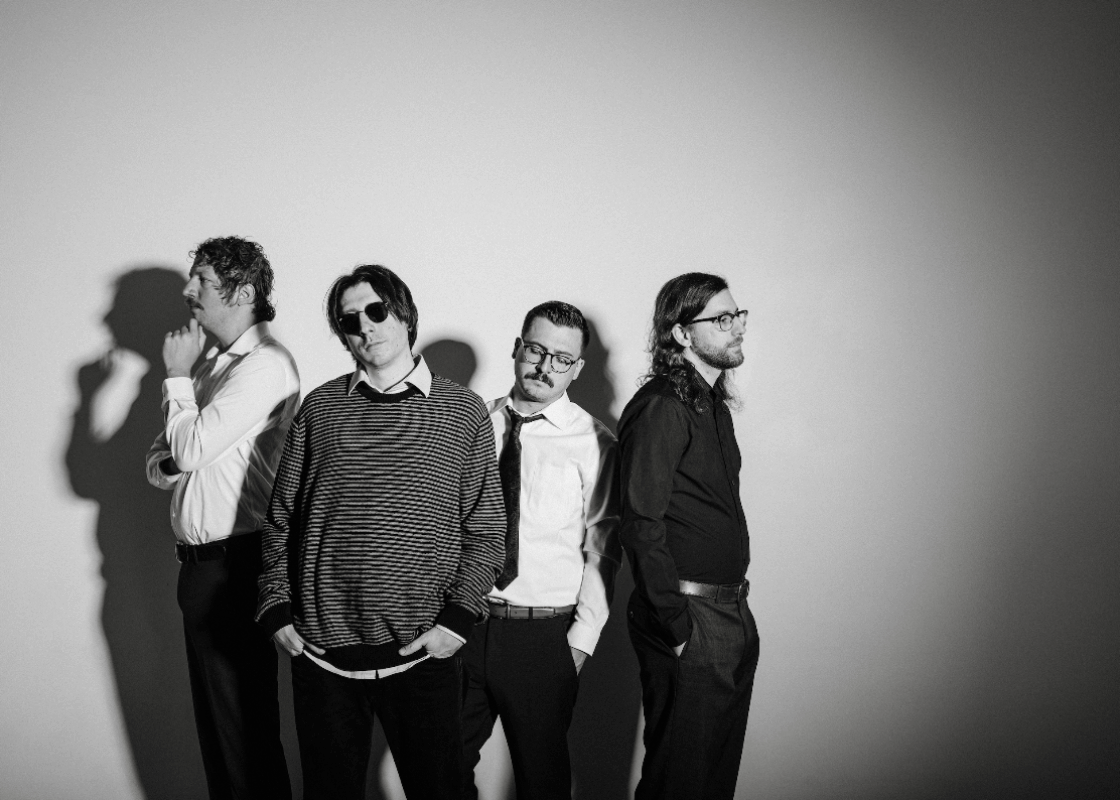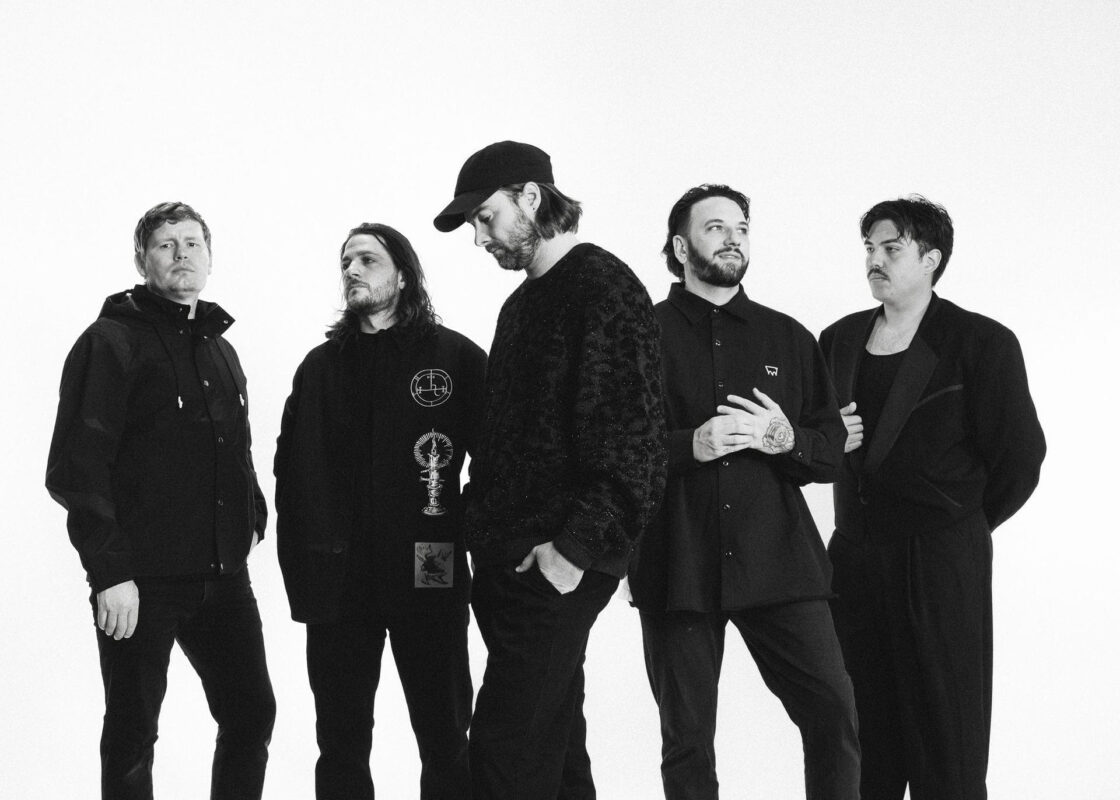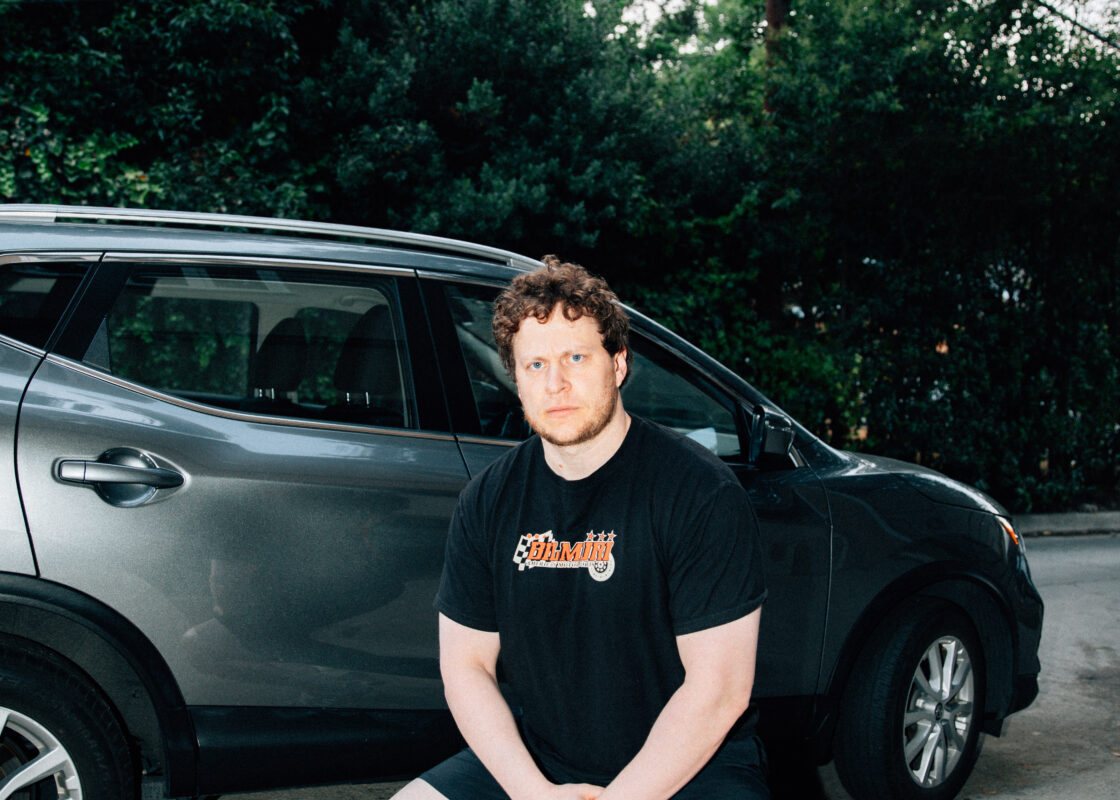Derived from the Latin word for “haunted,” Uada is a household name within most black metal circles. Their impact in the sub-genre is comparable to what bands like Memphis May Fire and The Devil Wears Prada have had on metalcore.
Setting themselves apart in every record with their pace, vocals, and energy, the Pacific Northwest act lives up to their name with impeccable veracity, drawing fans deeper into their universe from the first listening experience.
There is also something special about finding artists that resonate with you as a listener, even when you can’t understand all the lyrics — the music speaks for itself. That said, when lead vocalist Jake Superchi agreed to sit down with me, I jumped at the opportunity to discuss the intrinsic details about the band members, their main inspiration, and what life looks like outside of Uada.
Are you and the band based in Portland, OR? Is that where you originated as a band?
I suppose we could say the band originated in Portland, as we would rehearse there during the early days. But I have never lived in Portland, or in the state of Oregon for that matter, and I have always resided across the border in Southwestern Washington State. Right now, there are no members that live in Portland, and we have all been scattered since the pandemic. Our lead guitarist lives in Colombia in South America, our drummer lives about an hour outside of Portland down in the Oregon gorge, and our bassist, as of this moment, has temporarily moved back to Florida to spend time with and take care of his parents. It makes things a bit challenging, but we continue forward no matter the circumstances. Everything will come together when it is meant to be.
How is the black metal scene in the Pacific Northwest?
The Pacific Northwest, as a whole, has always had a great scene. There have been a lot of inspirational bands to come out of this area. One of the best parts about the scene here is that the sound is just as vast as the landscapes. Although we have a lot of bands falling under similar sub-genre tags, most bands have a very distinct or unique sound to their craft, which separates them from sounding too similar to one another, be it traditional, doom, “Cascadian,” atmospheric, symphonic, war, or a collaborative mix. To me, what we hold here isn’t so much of a sound as it is a feeling, and the feeling that is captured here is something that isn’t heard in other regions.
You guys have three albums so far: Devoid of Light (2016), Cult of a Dying Sun (2018), and Djinn (2020). Given you seem to release a new record every two years, do you plan on releasing anything new this year? If so, can you tell us about it?
Yes, we have a new album finished and one that we believe to be our strongest work yet. It seems people are extremely interested to see where the direction is going after our last album, as we often get asked, “What does the new album sound like?”, to which I can only reply, “It sounds like Uada.”
To give a little more insight into what that means: I personally think this album sounds like all three of our previous albums with an even broader scope and more mature and polished balance, overall. When I say “polished,” I don’t mean polished from a production aspect or a “too clean” type of meaning. It just means that we’re homing in on our craft, and there has been a focus on this album that we couldn’t have before due to other circumstances. For the first time, this album feels like we have 100% dedication and approval from all the members behind it, whereas in the previous three, there was always resistance. We, of course, are always up for constructive criticism and will take any input to heart, but it must be constructive and cohesive. I think that cohesiveness can be heard and felt in the new album.
“As someone who has been playing black metal for over 25 years now, I too had always enjoyed the Latin and desecration of the Latin language within black metal, so it made the most sense to check a dead language for such a word. After searching a few different sources, Uada came to be. It is a simple word and one as mysterious as the presence I had felt and witnessed, let alone the music that was forming from it.”
From what I found, your name comes from Latin and means “haunted.” How did you come about that name?
The way I had started this project came to me at a very important time and from a very profound moment that I’ve spoken of since it happened. I won’t go into the full story, but in the very first moments of writing the first riffs to be later heard on our debut, Devoid of Light, I was in a sort of meditative state with my eyes closed, playing the opening riff from “Black Autumn, White Spring,” and with that came visions of what I assume was a remote viewing session that was influenced or implanted from someone or something that was speaking to me during this process. So, as I sat in place playing these riffs and seeing what I assumed was myself on stage in the future, it was really easy for me to know where the visual direction was going.
While all of that was happening, the word “haunted” kept repeating over and over in my head, not in a dialogue aspect either, which is strange because my mind never stops talking. It was more of a knowing, if that makes sense. I did not hear the word, I did not see the word, but it was there and kept presenting itself in this strange translucent way. I can’t really explain it, but I knew that word would be the one to represent this new entity.
Of course, I also knew that there was already a prominent band named The Haunted, so in order to use the word I’d have to seek it out in a different language. As someone who has been playing black metal for over 25 years now, I too had always enjoyed the Latin and desecration of the Latin language within black metal, so it made the most sense to check a dead language for such a word. After searching a few different sources, Uada came to be. It is a simple word and one as mysterious as the presence I had felt and witnessed, let alone the music that was forming from it.
You appear to still be on the record label, Eisenwald, based in Germany. How did you connect to a label in Germany?
Before we had released our debut, we were playing a lot of local shows in the PNW, mainly in Portland with a few others in Seattle and Olympia. As we started to cause a commotion, more and more people started to show up to see what we were all about. At this time, we had met John Haughm from Agalloch, as he was recruiting our drummer at the time for another project of his. It was John’s girlfriend, and I believe band manager at the time, Veleda Thorsson, who directly spoke of Eisenwald to me. One thing she said to me was, “It is hard to find good people in the music industry, let alone the world, so when you do, hold on to them.” These very important and correct words never fell on deaf ears, and I took what she said to heart because I know, especially now, how hard that struggle can be.
When our debut was ready to be shopped to labels, Eisenwald was one of the first on our list, and one of only two labels who responded. The other label that I won’t mention had just criticized the drumming on the record. Of course, he was not wrong about what he said, but it was kind of a strange message to receive, I suppose. I’m sure it was meant as constructive criticism and a message some of us took to heart. Later, that label would write to us again with interest after seeing how well the album was doing, but that’s the business, I suppose.
Eisenwald, on the other hand, wrote back within 24 hours with great interest and spoke of how he had been waiting for this mail for some time. Apparently, Veleda was also talking about us to the owner, Nico, and had sent him some live videos she had captured at our shows. In the first message, I could tell that there was a lot of interest and passion, and over the years I’d eventually come to learn to trust this label. When someone keeps their word and continues to do so, it should be valued, and we value that relationship with Nico and Eisenwald. They have believed in what we are doing since the beginning, and they allow us 100% artistic freedom. We really couldn’t ask for more.
So, what inspires your music? Philosophy? Nature? Spirituality? A mix of those things?
All of the above, yes. Especially lyrically. The writing always comes from a place of frustration or a place of hope. I think those two elements will always be intertwined in our sound. Life is frustrating and challenging and full of ups and downs. I get that out in the music and the words that I write. Music itself is not only an expression, but also a tool, and one we use for what we consider Magick. This is our will put into sonic form. We create frequencies and sounds that manipulate reality, in which it opens paths and unlocks doors to reach higher grounds of being and existence.
I know artists hate this question sometimes, but I’m going to ask anyway [Laughs]. What bands have inspired you as an artist the most?
This is hard to answer because there are so many different bands that have really influenced all four of us in our lives. Before black metal and finding black metal, we were all inspired by bands like Black Sabbath, Judas Priest, Iron Maiden, Thin Lizzy, and Motorhead. Locally, there were influential bands like Alice in Chains, Nirvana, and Queensryche, and of course early American (North and South) thrash bands like Slayer, Megadeth, Sepultura, and Metallica. …And Justice For All was an album that our drummer, as well as myself, had taught ourselves to play drums to at an early age. There are also certain types of doom or goth (rock) bands like Type O Negative, Danzig, My Dying Bride, Paradise Lost, and Katatonia that have majorly influenced my writing since starting in the mid-90s.
When it comes to black metal, we all grew up on the 80s and 90s bands like Bathory, Emperor, Dissection, Darkthrone, Mayhem, Vinterland, Dawn, Hades, Abigor, etc. I think if you sit down and listen to a Uada record, you can hear all of these influences come to play throughout the album, sometimes even all within a song itself. Some more than others, of course, but it’s all there.
Outside of playing in a band, what do you like to do in life? What are some of your hobbies, and who are you outside of music?
Hiking and camping are some things that we all share. Adventuring out into nature is something that just can’t be beat. It’s the wild and it is there where one can truly feel free, even if just for a few moments. Other than that, for me personally, I enjoy pushing my body to the limits when I can. During the startup from 2014 to 2019, I did so in a different way while ignoring everything else around me in order to achieve a lot of goals and drive this band into the territories we willed it to be. Looking back now, I can see how unhealthy it was and how it all caught up to me, but I wouldn’t change it. Everything is a learning experience, and the experiences I’ve had are what will help me grow to be better.
Now that I’m home and have more time to focus on myself again, I’ve gotten back into weightlifting, strength training, and with the pandemic restrictions lifting back up, I’m in the gym training Brazilian Jiu-Jitsu 4–5 nights a week. It is important for me to push my body so that I can ease my mind. Otherwise, I’d probably just go crazy.
Aside from that, occult studies, paranormal activity, and any sort of unexplainable phenomena—be it supernatural, interdimensional, or extraterrestrial. That is something that is always interesting and has played prominent roles in my life, state of mind, and worldview. I guess perhaps that isn’t considered a hobby, but it is definitely something that I enjoy and know the other members have, as well.
Are you planning on touring in the next year?
We are trying our best to put things together as we continue to watch them fall apart, but I am sure that in 2022 we will be able to finally play live again. We plan on it.
Be brutally honest with this one. What is the best way fans can support you guys right now?
No problem, brutal honesty is my specialty. Of course, merch sales are one way that really helps us, as it continues to fund us in order to create and take the next steps in our evolution. We re-invest everything back into the craft, be it equipment needed, travel costs, upgrades for the stage or studio, video productions, and so on.
Above that, I think just sharing the support for the band itself is most important and most appreciated. Far too often, people go quiet in fear of being ridiculed, and we all know when some bands gain a bit of attention or popularity it becomes the “cool thing” to hate on said bands. For me, the real cool thing was always to be yourself regardless of what anyone else thinks or says. There is no need to fear it, so I believe that people who want to show their support for something they believe in should do so no matter what it is. Regardless of what comes their way, they’ll learn something from it; on top of that, they’ll find empowerment in understanding that the opinions of others are just as fragile as the egos behind them. If our art can help someone find the power they hold within themselves, then I can see nothing greater or more rewarding. To me, that holds more value than any amount of merch sales in the world ever could.



















